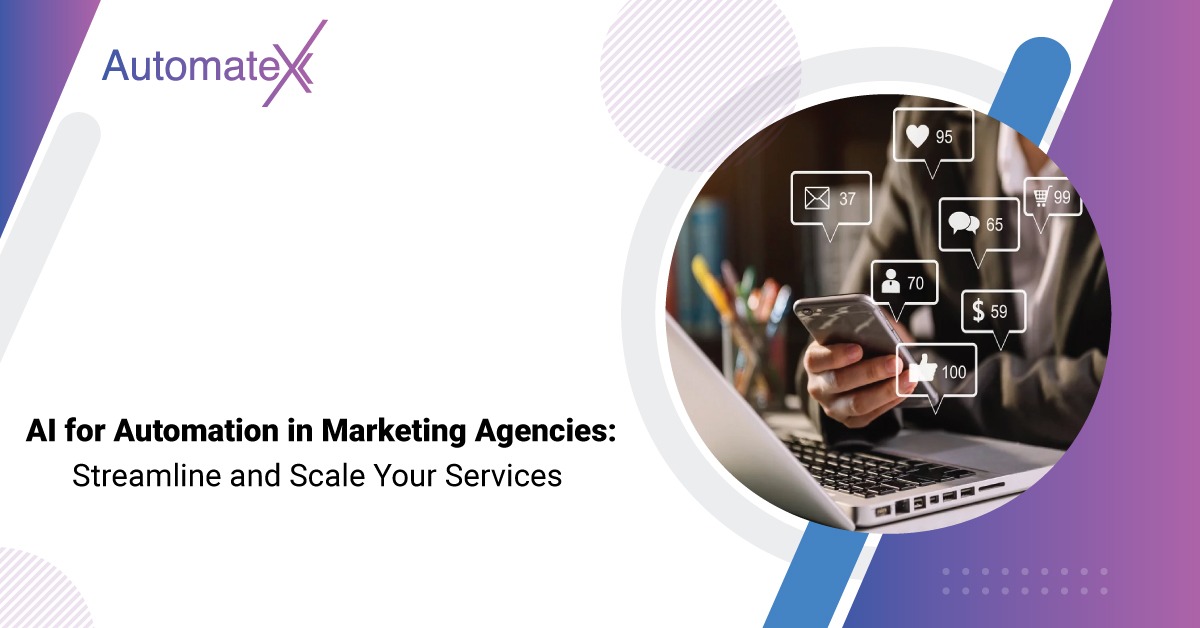In today’s competitive business landscape, harnessing the power of artificial intelligence (AI) is not just a trend but a necessity for future-proofing your lead generation strategy. At Automatex, we specialize in leveraging AI to transform how businesses attract, nurture, and convert leads across diverse industries including healthcare, home services, law firms, and marketing agencies. Here’s a comprehensive look at how AI can future-proof your lead-generation efforts.
Embracing AI: The Foundation of Future-Proofing
AI serves as the cornerstone of future-proofing your lead generation strategy by enabling automation, personalization, and predictive analytics. By automating repetitive tasks and leveraging machine learning algorithms, businesses can streamline operations and allocate resources more efficiently toward strategic initiatives.
Key Benefits of AI in Lead Generation
AI offers several key benefits that enhance lead generation effectiveness. It enables real-time data analysis, allowing businesses to gain actionable insights into customer behavior and preferences. This data-driven approach ensures that marketing efforts are targeted and personalized, thereby increasing conversion rates and improving ROI.
Integrating AI with CRM Systems
Integrating AI with Customer Relationship Management (CRM) systems enhances lead management capabilities. AI-powered CRM platforms centralize customer data, facilitate lead scoring, and automate follow-up processes. This integration ensures that sales teams have access to up-to-date information, enabling them to nurture leads effectively through personalized interactions.
Predictive Analytics: Anticipating Customer Needs
Predictive analytics powered by AI enables businesses to anticipate customer needs and behaviors. By analyzing historical data and identifying patterns, AI algorithms can predict which leads are most likely to convert. This foresight allows businesses to prioritize high-value leads and tailor their marketing strategies accordingly, thereby maximizing conversion rates.
Personalization at Scale
AI empowers businesses to deliver personalized experiences at scale. Through natural language processing (NLP) and machine learning, AI systems can analyze customer interactions in real time and respond with relevant content or recommendations. This level of personalization fosters stronger customer relationships and increases engagement throughout the buyer’s journey.
Enhancing Customer Engagement with AI
AI-driven chatbots and voice assistants play a pivotal role in enhancing customer engagement. These intelligent tools provide instant support, answer queries, and guide prospects through the sales funnel 24/7. By offering timely and relevant assistance, businesses can improve customer satisfaction and loyalty.
Ethical Considerations in AI Adoption
While AI offers immense potential in lead generation, it’s essential to address ethical considerations. Businesses must ensure transparency in data usage, mitigate biases in AI algorithms, and prioritize data privacy to build trust with customers. Ethical AI practices not only safeguard reputation but also foster long-term customer loyalty.
Future Outlook: Evolving Trends in AI for Lead Generation
Looking ahead, the future of AI in lead generation is promising. Advancements in AI technologies such as augmented analytics, hyper-personalization, and AI-driven content creation will further revolutionize how businesses attract and retain customers. Embracing these innovations will be key to staying ahead in a rapidly evolving digital landscape.
For a deeper dive into advanced strategies for AI-powered lead generation in 2024, visit Advanced Strategies for AI-Powered Lead Generation in 2024.
FAQs about AI-Powered Lead Generation
-
How does AI improve lead generation efficiency?
AI improves efficiency by automating tasks, analyzing data to predict customer behavior, and delivering personalized experiences that resonate with prospects.
-
What role does AI play in CRM systems for lead generation?
AI enhances CRM systems by centralizing customer data, enabling lead scoring, automating workflows, and facilitating personalized customer interactions.
-
What are the challenges of implementing AI in lead generation?
Challenges include data privacy concerns, integration with existing systems, ensuring AI transparency, and addressing potential biases in algorithms.
-
How can businesses measure ROI from AI-powered lead generation?
Businesses can measure ROI by tracking metrics like lead conversion rates, customer acquisition costs, and revenue generated from AI-driven campaigns.
-
What are the future trends in AI for lead generation?
Future trends include AI-powered hyper-personalization, augmented analytics, voice search optimization, and advancements in AI-driven content creation.



